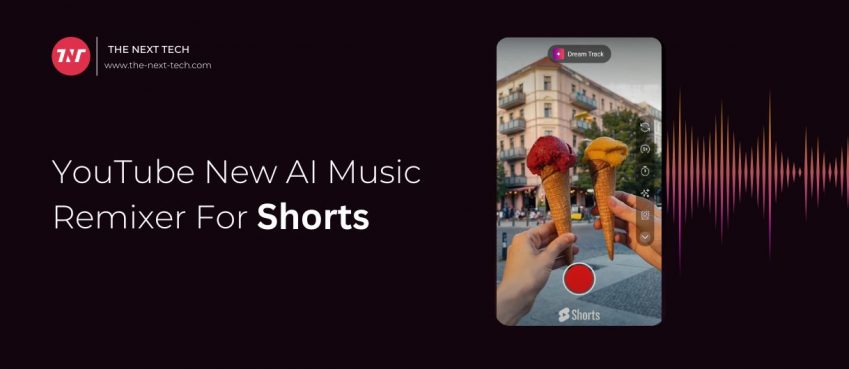
One of the most common dilemmas for startup founders is to decide between building their app on a cross-platform or a native environment. There are pros and cons of both types of app, which must be properly considered before making a decision.
In this article, we’ll dive deeper into what cross-platform and native mobile apps are all about and which one you should build over the other.
What Is Cross-Platform App Development
Cross-platform apps are mobile apps that are built from a single code base and work on different platforms. It means that the developer team would only need to build the application once, which then can be reused for both iOS and Android.
Some of the reasons for cross-platform apps’ popularity are their short time-to-market, low cost, and ease of implementation. Developers would not have to study extensively into the individual operating system’s architecture when building cross-platform apps.
Despite the benefits of cross-platform apps, they are quite limited in features as developers cannot access the hardware of the mobile devices. That’s the price to pay for a quick and economical approach to building a multi-platform mobile app.
A different technology stack for mobile applications is used to develop cross-platform apps. To be specific, developers turn to programming tools like Xamarin, React Native, and Dart to build cross-platform apps.
Alaska Airlines, The World Bank, and CA Mobile are examples of cross-platform apps that work on iOS and Android.
What Is Native App Development
Native app development involves building a mobile app that works only on a specific platform. Today, there are two dominant platforms in the market, which is the iOS and Android operating system. Native apps are mobile apps that are designed to function on only a single platform.
A native app takes full advantage of the features of the mobile device. The developer can build functions that utilize data from the device’s numerous sensors and control the camera, mic, and other accessible peripherals. Besides that, native apps are also generally more superior in performance.
Technology stack for mobile applications usually includes Java/Kotlin for Android or Swift/Objective C for the iOS platform. An app that’s built specifically for iOS couldn’t work on Android and vice versa. This means you’ll need to have two different teams working on both versions of the app if you’ll want to release them concurrently.
Some of the most popular native apps include Facebook, Whatsapp, Twitter, and Lyft, which are built specifically for iOS and Android.
Also read: How To Void A Check? A Step-By-Step Guide (In The Right Way)
Native or cross-platform app development
Your decision on building a native or cross-platform app could very well hinge on these factors. Each type of app could shine in some but may lose out in other areas.
Performance
Native apps are build in accordance with the guideline of the respective platforms. Therefore, you can expect better performance in terms of speed and UX for a native app.
On the other hand, cross-platform apps are unable to leverage the low-level functionalities of the devices. It’s also hard to strike a balance in terms of UX for different operating systems.
Cost
If you’re building a cross-platform app, you get to develop a single application that works on both platforms. It spares you the need to hire more developers, which is what you’ll need to build native apps.
At the end of the day, you’ll find that building a native app is more expensive, which begs the question, “do you need the additional performance and features that a native app could deliver?”.
Development Speed
There’s no shortcut in building a native app. Your team would have to build the code from scratch for both iOS and Android. Code reusability is non-existence for native apps, which is a downer if you have a deadline to chase.
Meanwhile, a cross-platform app will get you to the market quicker. The same codebase can be reused for different platforms, which drastically cut short the development time.
Maintenance and Support
Any experienced team will realize the importance of maintenance and support, particularly if an app is newly-launched.
Expect a tougher job responding to bugs and technical issues if you’re rolling out a native app. The complaints may differ on both platforms, and you’ll need to have two different teams ironing out the issues.
Support and bug-fixing on a cross-platform are, thankfully, easier. Your team would only need to focus on a single code base. Once the changes are applied, an update can be released on both platforms simultaneously.
Also read: Top 7 Work Operating Systems of 2021
Store Exposure
Want to get your app featured on Google PlayStore or Apple AppStore? Call it bias, but you’ll stand a higher chance if you’re releasing native apps. A native app takes advantage of the optimized native environment, which naturally results in better performance.
Both stores tend to reward apps that deliver a better user experience, which is quite unlikely for cross-platform ones.
Choose native app development in these cases
You should opt for the native app if:
- The app needs access to low-level hardware.
- You can’t compromise on app performance.
- UX is a crucial factor.
- You need an easily-scalable app for future versions of the devices.
Choose cross-platform app development in these cases
- You need to get the app to the market as soon as possible.
- The app does not utilize hardware peripherals on the mobile device.
- App performance and UX is tolerable and not a ‘make-or-break’ factor.
- You wanted to test an idea quickly with a prototype.
Summary
By now, you’ll have a clear idea of whether developing a cross-platform or native mobile app is the better investment for your startup. What works for a competitor does not necessarily work for you. You’ll need to decide based on your business goals and requirements.
Top 10 News
-
01
10 Exciting iPhone 16 Features You Can Try Right Now
Tuesday November 19, 2024
-
02
10 Best Anatomy Apps For Physiologist Beginners
Tuesday November 12, 2024
-
03
Top 10 Websites And Apps Like Thumbtack
Tuesday November 5, 2024
-
04
Top 10 Sites Like Omegle That Offer Random Video Chat
Monday October 21, 2024
-
05
Entrepreneurial Ideas To Make 5K In A Month (10 Realistic Wa...
Monday October 7, 2024
-
06
[10 Best] Cash Advance Apps Like Moneylion And Dave (No Cred...
Friday September 20, 2024
-
07
Top 10 Richest Person In The World
Tuesday August 27, 2024
-
08
Top 10 Unicorn Startups In The World (2024-25)
Monday August 26, 2024
-
09
Top 10 IT Companies In The World By Market Cap
Thursday August 22, 2024
-
10
[10 New] Best OnionPlay Alternatives To Stream TV Shows And ...
Tuesday June 11, 2024







